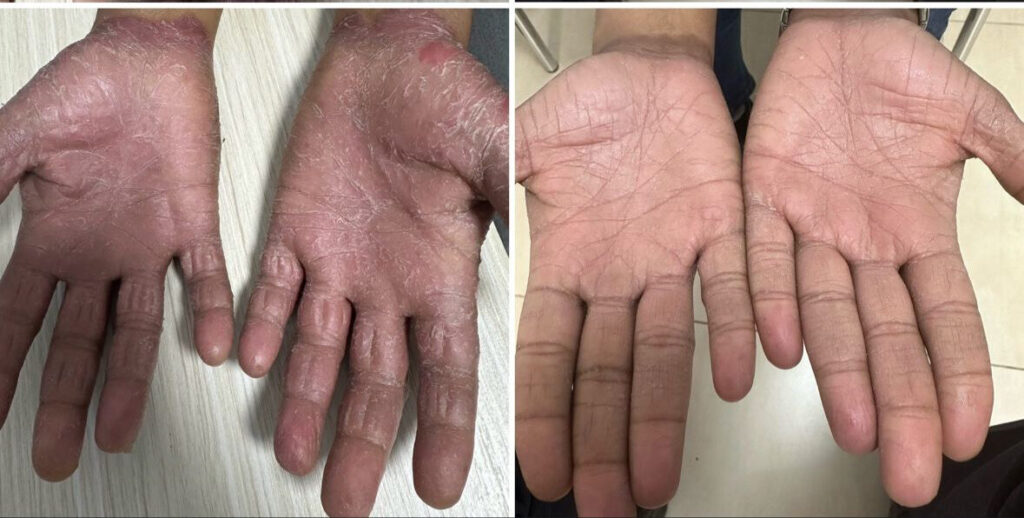Psoriasis is a chronic autoimmune skin condition that accelerates the life cycle of skin cells, causing them to build up rapidly on the skin’s surface. This leads to the formation of thick, scaly patches, often accompanied by redness and itching.
Types of Psoriasis
-
Plaque Psoriasis: Characterized by raised, red patches covered with a silver-white scale.
-
Guttate Psoriasis: Small, drop-shaped spots, often triggered by infections.
-
Inverse Psoriasis: Smooth, red patches that develop in skin folds, such as under the breasts or around the groin.
-
Pustular Psoriasis: White pustules surrounded by red, inflamed skin.
Causes of Psoriasis
-
Genetic Predisposition: A family history of psoriasis increases the risk of developing the condition.
-
Immune System Dysfunction: The immune system mistakenly attacks healthy skin cells, leading to rapid cell turnover.
-
Triggers: Infections, stress, and certain medications can trigger flare-ups.
Treatment Options for Psoriasis
-
Topical Treatments: These include corticosteroids, vitamin D analogs, or salicylic acid to reduce inflammation and control symptoms.
-
Phototherapy: Exposure to ultraviolet (UV) light helps slow down the rapid turnover of skin cells.
-
Systemic Medications: For severe cases, biologics or oral drugs may be prescribed to manage the condition.
Managing psoriasis often requires a combination of treatments tailored to the individual’s needs. It’s essential to work with a healthcare provider to determine the most effective approach.

